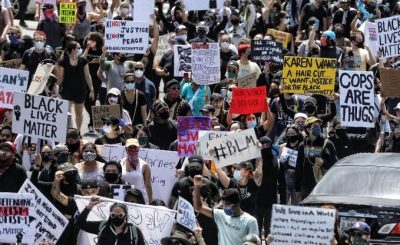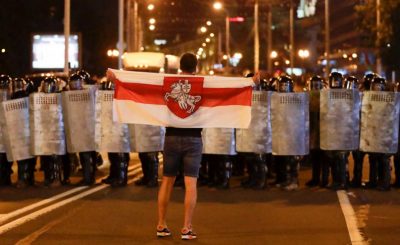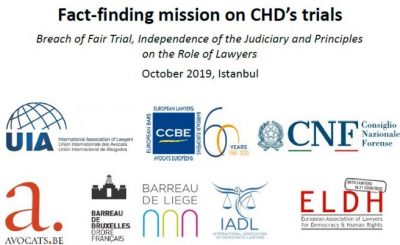Belorussia is now a capitalist state, headed by a henchman of the Belorussian bourgeoisie – the current president A.G. Lukashenko. He, by his character, personality and Soviet upbringing, in words opposes the private owner, argue against the arbitrariness of the capitalists (he calls them “fat cats”), stands up for the people. In fact, he defends the interests of a part of the big bourgeoisie that is closely associated with the government. Lukashenko himself is also a big capitalist.
Great power is concentrated in the hands of the president, but, again, the president uses it mainly in the interests of a small group of wealthy individuals. We see that the people who live only on wages (workers, employees), year after year, lose their rights and freedoms: the right to decent wages, free education and medical care, housing; they are deprived of freedom of assembly, speech, press, etc. That is the dictatorship is growing, but not the dictatorship of a person, but dictatorship of the bourgeoisie.
In Belorussia the contradiction between the national bourgeoisie and the foreign bourgeoisie (Western, on the one hand, and Russian, on the other) is a growing. There is also a contradiction between the big bourgeoisie and the middle and petty bourgeoisie. At the same time, the contradiction between employees and capitalists is growing, but most people see this contradiction as a contradiction between the people and the president with his power vertical.
Many people believe that the difficulties in the economy, the deterioration of their lives are associated with the rule of the current president, who has been in power for 26 years. The nationalist and liberal pro-Western opposition supports this opinion in society through their media. The opposition calls Lukashenko a dictator, thereby deceiving the people, hiding the fact that the people in Belorussia are under oppression of the dictatorship of the bourgeoisie, not the president. The myth is imposed on society that the change of the current president to any other will improve the situation of the people in the country.
Before the current presidential elections, opposition leaders in Belorussia relied on nationalism, a severance with Russia and joining the “civilized world” – the European Union. But in Belorussia, unlike, for example, Ukraine, nationalism at the state level was not implanted, and for many years the state policy was aimed at uniting Belorussia and Russia, as well as other countries on the territory of the destroyed USSR into one union. Therefore, the idea of nationalism, breaking off relations with Russia, joining the European Union was alien to the Belorussian people, and a very small part of the population supported the nationalist opposition, and even then only thanks to its funding.
In the current election campaign, three persons have appeared who differ from the usual Belorussian nationalist opposition. These are Sergei Tikhanovsky, Viktor Babariko and Valery Tsepkalo. (Although they differed from the traditional nationalist opposition, they soon in fact united with it.)
Tikhanovsky was previously engaged in show business in Russia, and about a year ago he started his blog on YouTube, in which he showed the life of Belorussian small towns and villages: about poverty, devastation, arbitrariness of officials, etc. That is, he has been showing the problems that many people in Belorussia face and live with every day. With experience in show business, Tikhanovsky was able to attract an audience and become famous among some part of society. While planning to be nominated as a presidential candidate, Tikhanovsky did not have any program – he only attracted the audience, created mass participation at his events.
On the contrary, Babariko and Tsepkalo were nominated as candidates with their proposals for changes in the country. They were different from the usual Belorussian nationalist opposition, who all the time that Lukashenko was in power only did what they walked with nationalist symbols, shouted about nationalism and about the need to break with Russia. Against the background of nationalists, Babariko and Tsepkalo practically did not touch on the national issue, they talked about an alliance with Russia from a business standpoint. They proposed specific reforms in the economic, political and social life of the country, which, in fact, boiled down to the liberalization of all spheres of social life: the privatization of industrial and agricultural enterprises, the transition to insurance medicine and paid education, etc. Their businesslike approach, outwardly reasonable criticism of the current government attracted part of the country’s population.
Let’s say in advance that none of the named presidential contenders has been registered. Tikhanovsky and Babariko were arrested, and Tsepkalo left for Russia. Now there is only one well known opposition presidential candidate – Tikhanovsky’s wife. All nationalist and liberal opposition forces rallied around her.
During the collection of signatures for the “opposition” candidates in Minsk and in some other cities of Belorussia, queues of people wishing to sign for “anyone but Lukashenko” lined up. And after the arrest of the banker Babariko, who wanted to become a presidential candidate, people began to line up not only to give their signatures in support of the “opposition” candidates, but also in solidarity with the detained banker Babariko and other arrested oppositionists (Tikhanovsky, Severinets, Statkevich, etc.). The “queue of solidarity” began to turn into a “chain of solidarity”.
In the wake of the increased political activity of some part of the population, chats were created in the Telegram messenger, allegedly for communication of people advocating for changes in the country. The chats were immediately advertised on some of the popular opposition Telegram channels. In fact, it turned out that in these chats, as well as in the opposition Telegram channels, active preparations are being made for the “color revolution”, i.e. to a coup d’etat. Herewith the organizers of the coup act in accordance with the well-known “training manual” of Gene Sharp “From Dictatorship to Democracy”.
The organizers set up politically active people for peaceful mass protests, for which they select suitable occasions. As a test of strength before the elections, such occasions were the arrest of Babariko, the celebration of Independence Day on July 3, the refusal to register Babariko and Tsepkalo as presidential candidates. The next mass action is planned for August 3, i.e. on the day of the start of early voting. Then – on August 9, the day of elections, and on August 10 – after the announcement of the election results.
From the events in Ukraine and in other countries, we know that mass peaceful protests quickly develop into clashes with the police, riot police and armed forces after provocative killings of people from both opposing sides by snipers. Both protesters and police officers and riot police are being killed. In addition, mass peaceful protests, which allegedly take place without a leading organization, are quickly led at the right time by those who prepared them, and are sent in the right direction – to carry out a coup d’etat.
It is precisely this development of events that we expect in Belorussia. From the work of Telegram channels and chats, it is clear that the actions of the protesters are not spontaneous, they are controlled and directed in such a way that the protesters themselves think that there are no leaders and the people act out of their own motives.




